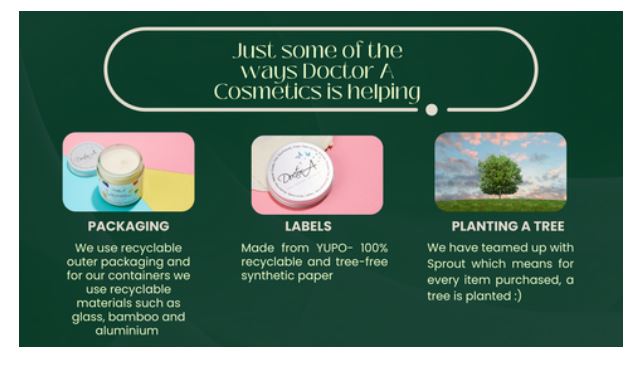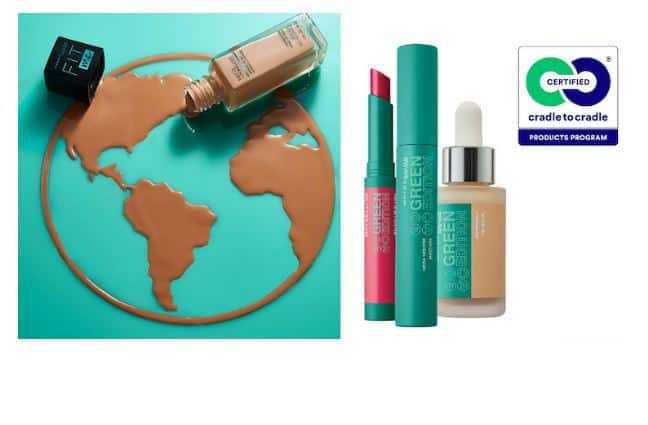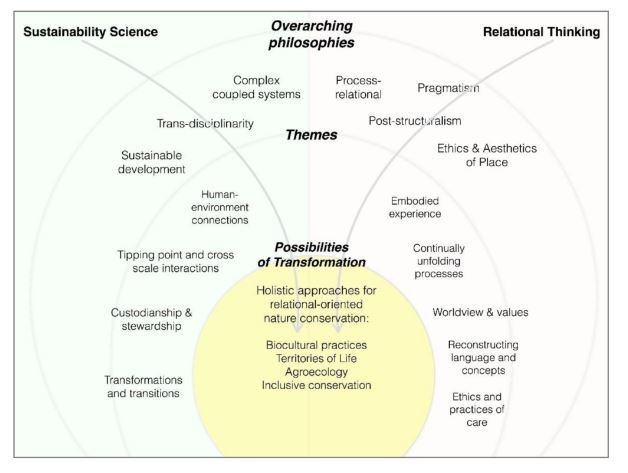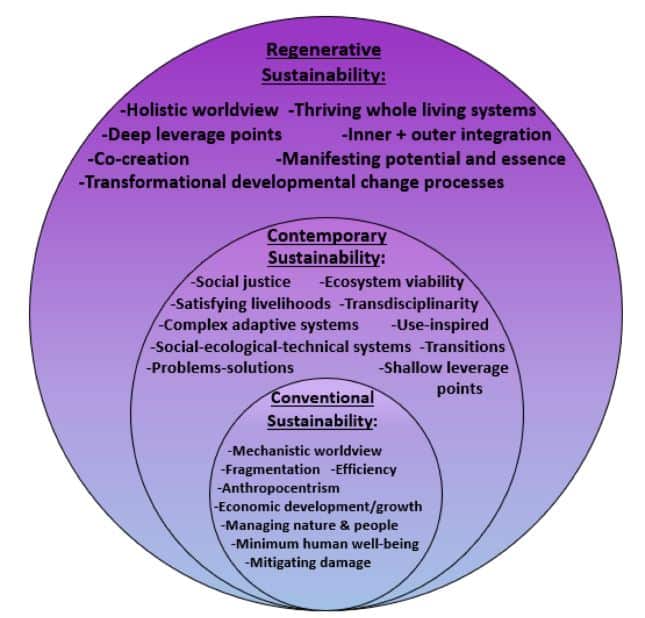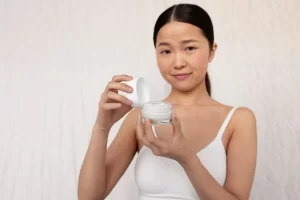
Welcome! In this article – Exploring the Importance of Eco-Friendly Beauty: A Sustainable Approach to Personal Well-being, we will be exploring the importance of eco-friendly beauty and how it can provide a sustainable approach to your personal well-being.
Eco-friendly beauty refers to the use of skincare, haircare, and cosmetic products that are produced with minimal harm to the environment.
By opting for eco-friendly beauty products, you are actively contributing to preserving the planet by reducing pollution, waste, and the use of harmful chemicals.
Not only does this benefit the environment, but it also benefits your own well-being.
Choosing eco-friendly beauty products means you are avoiding harmful ingredients that can potentially cause skin irritations, allergies, or long-term health effects.
Instead, you are using products that are made from natural and organic ingredients, which are not only gentle on your skin but also provide nourishment and beneficial effects.
By incorporating eco-friendly beauty into your routine, you are taking a holistic approach to personal well-being by caring for yourself and the planet.
Introduction to Eco-Friendly Beauty
Definition of Eco-Friendly Beauty
Eco-friendly beauty refers to the practice of using products, techniques, and approaches that prioritize sustainability and minimize harm to the environment.
It involves the use of natural, organic, and cruelty-free ingredients, as well as the adoption of sustainable packaging and manufacturing practices.
Eco-friendly beauty aims to promote a holistic approach to personal well-being while minimizing the negative impact on the planet.
Importance of Eco-Friendly Beauty
In recent years, there has been a growing awareness of the importance of adopting eco-friendly practices in various aspects of our lives, including beauty.
The beauty industry is known for its significant environmental footprint, contributing to issues such as pollution, deforestation, and waste generation.
By embracing eco-friendly beauty, individuals can make a positive difference by reducing their carbon footprint, conserving resources, and supporting sustainable farming practices.
Impact on Environment
The beauty industry is often associated with excessive packaging, synthetic chemicals, and the depletion of natural resources.
Conventional beauty products contain ingredients such as parabens, phthalates, and microplastics, which not only harm the environment but also pose potential health risks.
The production, transportation, and disposal of these products further contribute to greenhouse gas emissions and waste accumulation.
By opting for eco-friendly beauty products, you can help minimize these environmental impacts and protect the planet for future generations.
Impact on Personal Well-being
Eco-friendly beauty goes beyond environmental considerations; it also has a profound impact on personal well-being.
Conventional beauty products often contain harmful chemicals that can be absorbed through the skin, leading to various health issues such as irritation, allergies, and even hormone disruption.
By choosing eco-friendly alternatives, you can avoid these potentially toxic substances and promote healthier skin.
Additionally, eco-friendly beauty practices, such as mindfulness and self-care, can also enhance mental well-being, providing a more holistic approach to beauty.
Understanding Sustainable Approaches
Definition of Sustainable Approaches
Sustainable approaches in beauty involve adopting practices that have a minimal impact on the environment while still being effective and beneficial for individuals.
This includes using organic and natural ingredients, reducing waste, investing in renewable energy sources, and prioritizing ethical sourcing and production methods.
Examples of Sustainable Practices
There are several sustainable practices that can be incorporated into your beauty routine.
For instance, using products made from organic and renewable ingredients helps reduce the reliance on harmful chemicals and supports ethical farming practices.
Another example is the use of refillable packaging or packaging made from recycled materials, which helps reduce waste and energy consumption.
Additionally, supporting brands that prioritize fair trade and ethical sourcing ensures that the communities involved in the production process are treated fairly.
Benefits of Sustainable Approaches in Beauty
By embracing sustainable approaches in beauty, you can reap numerous benefits.
Firstly, using organic and natural ingredients can provide nourishment to your skin without the risk of harmful side effects.
These ingredients are often packed with vitamins, minerals, and antioxidants that promote healthier skin in the long run.
Secondly, sustainable practices help reduce waste and pollution, which contribute to a cleaner and healthier environment.
Lastly, supporting ethical brands fosters a sense of community and responsibility, knowing that your beauty routine aligns with your values.
Choosing Eco-Friendly Beauty Products
Reading Labels and Certifications
When choosing eco-friendly beauty products, it is essential to read labels and look for certifications that indicate their sustainability.
Look for certifications such as organic, cruelty-free, fair trade, and vegan.
These labels ensure that specific standards have been met in terms of ingredient quality, ethical sourcing, and animal welfare.
Evaluating Packaging Materials
Packaging plays a significant role in the sustainability of beauty products.
Opt for packaging made from recyclable materials or choose brands that offer refillable options. Glass, metal, and cardboard packaging are more environmentally friendly alternatives to plastic.
Additionally, consider the packaging size and weight to minimize waste and energy consumption during transportation.
Avoiding Harmful Ingredients
Conventional beauty products often contain harmful chemicals such as parabens, sulfates, and synthetic fragrances.
These ingredients can irritate the skin, disrupt hormones, and pollute water sources. Look for natural alternatives and avoid products that include these ingredients.
Organic and plant-based ingredients are more beneficial for your skin and the environment.
Supporting Cruelty-Free Brands
Animal testing is a common practice in the beauty industry, but it is unnecessary and cruel.
Look for brands that are certified cruelty-free, indicating that no animal testing has been conducted.
By supporting these brands, you contribute to the movement towards more ethical and compassionate beauty practices.
Related: ” 10 DIY Beauty Recipes with Natural and Non-Toxic Ingredients”
Creating a Sustainable Beauty Routine
Switching to Natural and Organic Products
One of the first steps in creating a sustainable beauty routine is switching to natural and organic products.
These products are free from harmful chemicals and are more beneficial for your skin.
Look for ingredients such as aloe vera, chamomile, and essential oils, which provide natural hydration and nourishment.
Minimizing Water Waste in Beauty Routine
Water is a precious resource, and reducing water waste is crucial in eco-friendly beauty practices.
Turn off the tap while lathering or brushing your teeth, take shorter showers, and consider using dry shampoo or waterless cleansers to conserve water.
Additionally, collect rainwater to use for watering plants or cleansing your face.
Reducing Plastic Waste
Plastic waste is a major environmental issue.
Reduce your plastic waste by opting for products with minimal packaging or packaging made from recyclable materials.
Invest in reusable containers for beauty products such as shampoo bars, solid cleansers, and refillable makeup palettes. Swap single-use makeup wipes with reusable cotton pads or microfiber cloths.
Exploring DIY Beauty Recipes
Another sustainable approach to beauty is exploring DIY (Do-It-Yourself) beauty recipes.
You can create your own face masks, scrubs, and hair treatments using simple ingredients from your kitchen.
This not only reduces packaging waste but also allows for customization to suit your specific skincare needs.
The Impact of Eco-Friendly Beauty on the Environment
Reducing Carbon Footprint
The production, transportation, and disposal of conventional beauty products contribute to greenhouse gas emissions.
By opting for eco-friendly beauty products that prioritize sustainable sourcing and manufacturing, you can significantly reduce your carbon footprint. Supporting brands that use renewable energy sources also contributes to a cleaner and healthier environment.
Conserving Resources
Traditional beauty practices often rely on the depletion of natural resources such as water, minerals, and fossil fuels.
By choosing eco-friendly alternatives, you contribute to the conservation of these valuable resources.
Organic and sustainable farming practices promote the health of soil and ecosystems, ensuring the long-term availability of these resources.
Protecting Biodiversity
The use of synthetic chemicals in conventional beauty products can harm ecosystems and contribute to the loss of biodiversity.
By using natural and organic ingredients, you support farming practices that prioritize the protection of biodiversity.
Additionally, by avoiding products that contain endangered or over-harvested ingredients, you help preserve delicate ecosystems.
Promoting Sustainable Farming Practices
Eco-friendly beauty promotes the use of organic and sustainable farming practices.
These practices eliminate the use of harmful pesticides and synthetic fertilizers, ensuring the long-term health of the soil and surrounding ecosystems.
By supporting brands that prioritize sustainable farming, you contribute to a more sustainable and resilient agricultural system.
The Impact of Eco-Friendly Beauty on Personal Well-being
Avoiding Toxic Chemicals
Conventional beauty products often contain synthetic chemicals that can be harmful to your health.
By choosing eco-friendly alternatives, you can avoid these potentially toxic substances and reduce the risk of skin allergies, irritations, and hormone disruption.
Natural ingredients provide nourishing benefits to your skin, promoting healthier and more radiant-looking skin.
Enhancing Skin Health
Eco-friendly beauty products are often enriched with vitamins, minerals, and antioxidants that are beneficial for your skin.
These natural ingredients provide hydration, protection against environmental stressors, and support overall skin health.
Additionally, eco-friendly beauty practices that prioritize self-care and mindfulness can contribute to a more balanced and healthier lifestyle.
Boosting Mental Well-being
Eco-friendly beauty practices encourage a more mindful and intentional approach to self-care.
Taking the time to engage in a beauty routine that aligns with sustainable values can be a form of self-care that boosts mental well-being.
The use of natural scents, such as essential oils, can also have a positive impact on mood and relaxation.
Building Awareness and Mindfulness
Choosing eco-friendly beauty products and practices encourages a more conscious and mindful lifestyle.
It helps you build awareness of the impact your choices have on the environment and promotes a sense of responsibility towards sustainable living.
By incorporating eco-friendly beauty into your routine, you become an advocate for positive change and inspire others to do the same.
The Role of Eco-Friendly Beauty in Sustainable Fashion
Connecting Beauty and Fashion
Beauty and fashion are interconnected industries that share similar environmental impacts.
By embracing eco-friendly beauty practices, you align your personal well-being with sustainable fashion choices.
The use of natural and organic ingredients in beauty products complements the use of ethical and sustainably sourced materials in fashion, creating a more holistic and conscious approach to personal style.
Promoting Ethical Production
Eco-friendly beauty and sustainable fashion both prioritize ethical production practices.
By supporting brands that prioritize fair trade, workers’ rights, and ethical sourcing, you contribute to a more ethical and humane industry.
Ethical production practices ensure that the communities involved in the production process are treated fairly and have access to safe working conditions.
Encouraging Circular Economy
Eco-friendly beauty practices can also contribute to the promotion of a circular economy in the fashion industry.
By using refillable packaging, recycling containers, and repurposing beauty products, you reduce waste and encourage the reuse of resources.
This mindset can be extended to fashion by embracing second-hand shopping, upcycling, and participating in clothing swaps.
Supporting Slow Fashion Movement
The slow fashion movement advocates for mindful and sustainable consumption practices in the fashion industry.
By embracing eco-friendly beauty practices, you align yourself with the principles of slow fashion, which prioritize quality over quantity and emphasize the importance of ethical and sustainable choices.
Supporting slow fashion helps reduce waste, promotes traditional craftsmanship, and supports local communities.
Educating and Spreading Awareness
Informative Campaigns and Initiatives
Several organizations and initiatives focus on educating the public about the importance of eco-friendly beauty and sustainable practices.
Take advantage of these resources to learn more about ingredients, certifications, and sustainable brands.
Stay updated on informative campaigns that raise awareness about the environmental impact of conventional beauty practices.
Engaging with Beauty Community
Engage with the beauty community, both online and offline, to exchange ideas, tips, and recommendations for eco-friendly beauty products and practices.
Join forums, social media groups, and attend local events to connect with like-minded individuals who are passionate about sustainable beauty.
Collaborations with Sustainable Brands
Support and collaborate with sustainable beauty brands that prioritize ethical production, transparency, and positive environmental impact.
Collaboration can involve participating in brand campaigns, sharing reviews and recommendations, and amplifying their message through social media platforms.
By working together, we can create a more significant impact and promote the adoption of eco-friendly beauty practices.
Sharing Personal Eco-Friendly Beauty Journey
Share your eco-friendly beauty journey with others to inspire and encourage them to adopt sustainable practices as well.
Whether through blog posts, social media platforms, or personal conversations, sharing your experiences, tips, and recommendations can create a ripple effect and contribute to a more eco-conscious community.
Eco-Friendly Alternatives to Common Beauty Practices
Sustainable Packaging Solutions
Look for beauty brands that offer sustainable packaging alternatives, such as refillable containers, biodegradable materials, or packaging made from recycled materials.
These alternatives minimize waste and contribute to a more circular and eco-friendly beauty industry.
Natural Hair and Skincare Replacements
Embrace natural and organic alternatives for hair and skincare. Look for products that contain natural oils, botanical extracts, and plant-based ingredients.
These natural alternatives provide nourishment to your hair and skin without the use of harmful chemicals.
Zero Waste Makeup Tips
Reducing waste in your makeup routine can be achieved by opting for products with minimal or recyclable packaging, choosing multi-purpose products, and using reusable applicators such as brushes and sponges.
Additionally, consider purchasing makeup in bulk to minimize packaging waste.
Green Nailcare and Perfumery
Explore eco-friendly alternatives in nailcare and perfumery. Look for water-based nail polish, acetone-free nail polish removers, and non-toxic ingredients.
When it comes to perfumery, opt for fragrances made from natural and sustainable ingredients, avoiding synthetic chemicals that contribute to air pollution.
Conclusion
Embracing eco-friendly beauty is a sustainable approach to personal well-being that contributes to a healthier planet.
By choosing eco-friendly beauty products and adopting sustainable practices, you can minimize your environmental impact, support ethical production, and prioritize your health and well-being.
Through education, collaboration, and sharing of experiences, we can inspire others to join us on this journey towards a more sustainable and eco-friendly beauty industry.
Together, we can make a positive impact that extends far beyond our daily beauty routine.
